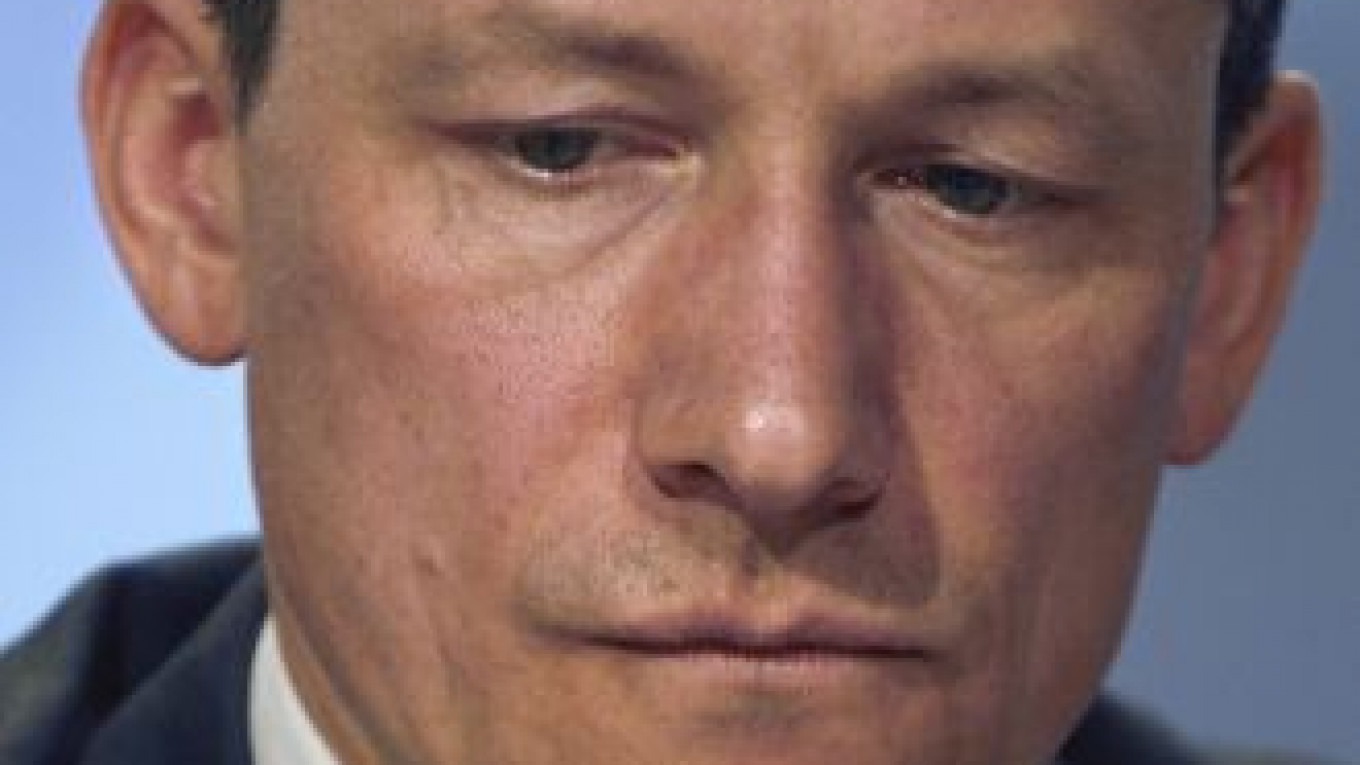International investment roadshows will become a regular part of Moscow’s self-promotion after a series of ?successful events this year, Deputy Mayor Andrei Sharonov said in an interview.
The decision comes as foreign investment in the capital slumped 34 percent in 2012.
It is the first time that Moscow has attempted to reach out to investors in such a way, and is part of a new public relations drive, organizers and participants said.
“It's about ringing the bell and saying, guys, we are here, we have some attractive opportunities,” Sharonov told The Moscow Times.
But concrete results would be hard to measure, he added. “It’s not a straightforward exercise where you spend two hours and get 200 investors.”
The city hired accounting firm KPMG to organize six roadshows this year in Tokyo, Singapore, Frankfurt, London, Boston and New York. The U.S. leg of the tour wrapped up last week.
Most participants already had some experience with the Russian market, and attendance numbers ranged from about 30 in Tokyo to about 100 in London.
Traditionally, Russian officials tend to have a “passive aggressive” attitude and resent having to persuade people to come and make money, said Daniel Satinsky, president of the U.S.-Russia Chamber of Commerce in New England, who attended the roadshow in Boston.
“It is an unusual event to have Moscow city officials actually coming to promote the city,” he added.
The new approach may be linked to the falling amount of foreign investment, which dropped from $123 billion in 2011 to $81.6 billion last year, according to City Hall statistics.
Direct foreign investment in 2012 was $4.2 billion, and portfolio investment — funds put into shares and securities — was $475 million.
Though the general trend is downward, the absolute figures are distorted by the large amounts of Russian money flowing through offshore destinations including Switzerland, Holland and Cyprus.
“It is difficult to get a clear final picture in terms of origins of investment,” said Sharonov, the city’s point man for economic policy and investment.
During the roadshows, officials sought to stress some less well known facts — that Moscow’s crime rate is comparable with Vienna, that the city’s $45,000 per capita GDP puts it on par with Tokyo, and that street signs in English would soon be going up across the capital. ?
“People doing business in Moscow have quite a different perception from those who visit the city and just pick up mainly negative information from the media,” said Sergei Cheryomin, head of the Moscow External Economic and International Relations department and leader of the roadshow delegation during its final leg in the United States.
Speakers on the tour also had to respond to political questions, particularly from those who have never worked in Russia before.
“The stereotypes that you hear are, on the one hand corruption, the rule of law and government intervention but also the adoption law and Pussy Riot,” said KPMG’s Marc Van der Plas, who moderated the presentations in the United States.
Duplicity is not a good idea when answering such questions, Sharonov said. “We try and do it honestly.”
Aside from other Russian cities, Moscow’s main rivals when seeking foreign money are split into two groups, Sharonov said. There are “global cities” like Beijing, Shanghai, Mumbai, Sao Paulo, Mexico City and Istanbul, and “our neighbors,” including Kiev, Warsaw, Helsinki and Prague.
Moscow needs to do more than just presentations if it wants to compete with such places, according to New England-based Satinsky. Unlike Russia, more than 50 countries have a representative in the Boston area, and “multinationals need to be courted,” he added.
Officials now face the challenge of using the roadshows, which exclude formal deal-making, to actually generate money flows into Moscow.
Turning interest into investment, Cheryomin admitted, was “really a challenge.”
Contact the author at h.amos@imedia.ru
Related articles:
A Message from The Moscow Times:
Dear readers,
We are facing unprecedented challenges. Russia's Prosecutor General's Office has designated The Moscow Times as an "undesirable" organization, criminalizing our work and putting our staff at risk of prosecution. This follows our earlier unjust labeling as a "foreign agent."
These actions are direct attempts to silence independent journalism in Russia. The authorities claim our work "discredits the decisions of the Russian leadership." We see things differently: we strive to provide accurate, unbiased reporting on Russia.
We, the journalists of The Moscow Times, refuse to be silenced. But to continue our work, we need your help.
Your support, no matter how small, makes a world of difference. If you can, please support us monthly starting from just $2. It's quick to set up, and every contribution makes a significant impact.
By supporting The Moscow Times, you're defending open, independent journalism in the face of repression. Thank you for standing with us.
Remind me later.


